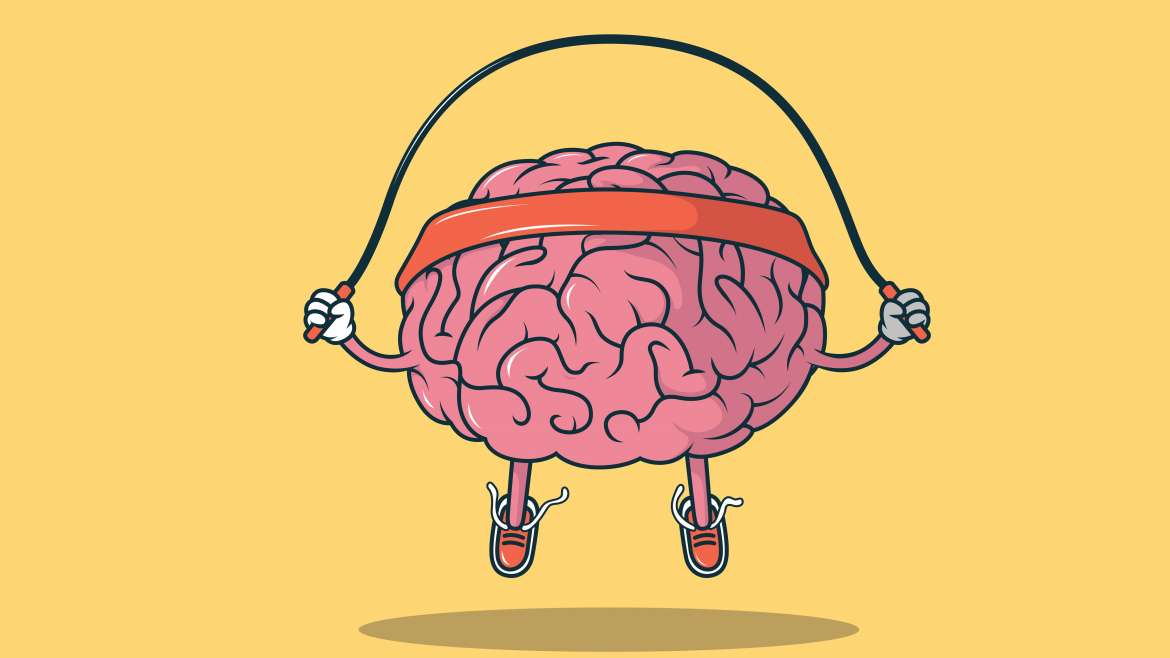As we age our brain changes and mental function will decline somewhat. While some changes are normal and nothing to worry about, others might indicate a more serious condition.
I first want to go over the most common types of changes and whether or not they are an indicator of something bad. Afterwards, we will discuss ways in which you can prevent age-related memory loss.
How Our Brain Changes As We Age
The most common change related aging is that you will take you longer to retrieve newly acquired information. In short, your long-term memory remains pretty much the same, whereas your short-term memory slows down.
The majority of people will experience some form of short-term memory glitch after the age of 50. This can include having problems remembering names, dates, and other specific details. The good news is that these brain farts are nothing major to worry about and not usually signs of dementia or Alzheimers.
As long as you don’t have difficulties with your daily activities you are probably on the safe side. Things that might indicate health concerns include forgetting how to do familiar tasks like preparing the same food you always ate of frequently leaving the water running.
The same goes if you are starting to have major difficulties learning new tasks some brain disease compromise the ability to learn new things. Changes in personality such as anger or avoidance can also be a sign of brain disease. Sometimes the frustration of losing the ability to care for yourself frightens people and can lead them to lash out or become reclusive.
Of course, none of these things by themselves are a strong indicator of any specific mental disease, but they are an indicator. Only your neurologist can say for certain what is going on and what should be done.
How To Prevent Memory Loss & Keep your Brain Fit Until Old Age
Even though the natural brain changes that come with age are you can minimize the impact of neurotransmitter deficiencies. There are several strategies that you can use to increase and balance neurotransmitters and keep your brain fit.
The importance of exercising your mind
Just like our body needs physical activity, our mind should be exercised, too. Just doing a few crossword puzzles and solving some Sudoku won’t cut it, though. Mental stimulation should take the form of not only complex problem-solving activities but also staying up to date on current events and socializing with family and friends or even playing an instrument.
If the brain is continually challenged and taken care of even as you age it will still be able to form new connections and learn new things. Calming but challenging hobbies like woodworking are also great ways to keep your mental fitness up.
Physical Exercise & Brain Health
Everyone knows about the benefits of exercise for the body, but it can also improve blood flow to the brain and as well as your attention span. Part of the right exercise regimen is also a brain-healthy diet, which should include the foods I outlined in my post on foods for brain health.
Stay Hydrated
Hydration is also huge. At about 90 percent of our brain is comprised of more water than any other organ in the body. Keeping it hydrated is vital for concentration and mental alertness. To learn how much water you should consume for optimal health, but sure to check out the video on ideal water intake.
Get Enough Sleep
Another important aspect is sleep. While we still don’t know about the long-term effects of poor sleep and its impact on memory loss, it’s safe to say that a proper sleep hygiene will benefit your mental fitness and improve cognition. So make sure to follow a regular sleep routine and get at least 7 to 9 hours every night.
Maintain A Healthy Lifestyle
And lastly, a few things you want to avoid or at least keep in moderation:
Alcohol: Studies have shown that those who drink excessively over years are at a higher risk of developing dementia and memory problems. Keep your intake at or below one to two drinks per day for men and one or less per day for women.
Smoking: Smoking increases the risk of strokes and dementia. It is also associated with Alzheimer’s and one study found that smokers have more than double the risk of nonsmokers to suffer from Alzheimer’s at one point in their lives.
Stress: managing your stress is important for every aspect of your health. Too much stress will cause the release of hormones and enzymes, which can affect judgment and memory. Cortisol, for example, is very high up the list of hormones that can impair memory.
Of course, short-term spikes of stress hormones are not a problem, but when their levels are elevated for too long, these chronic stressors will affect your health but mental and physical.



